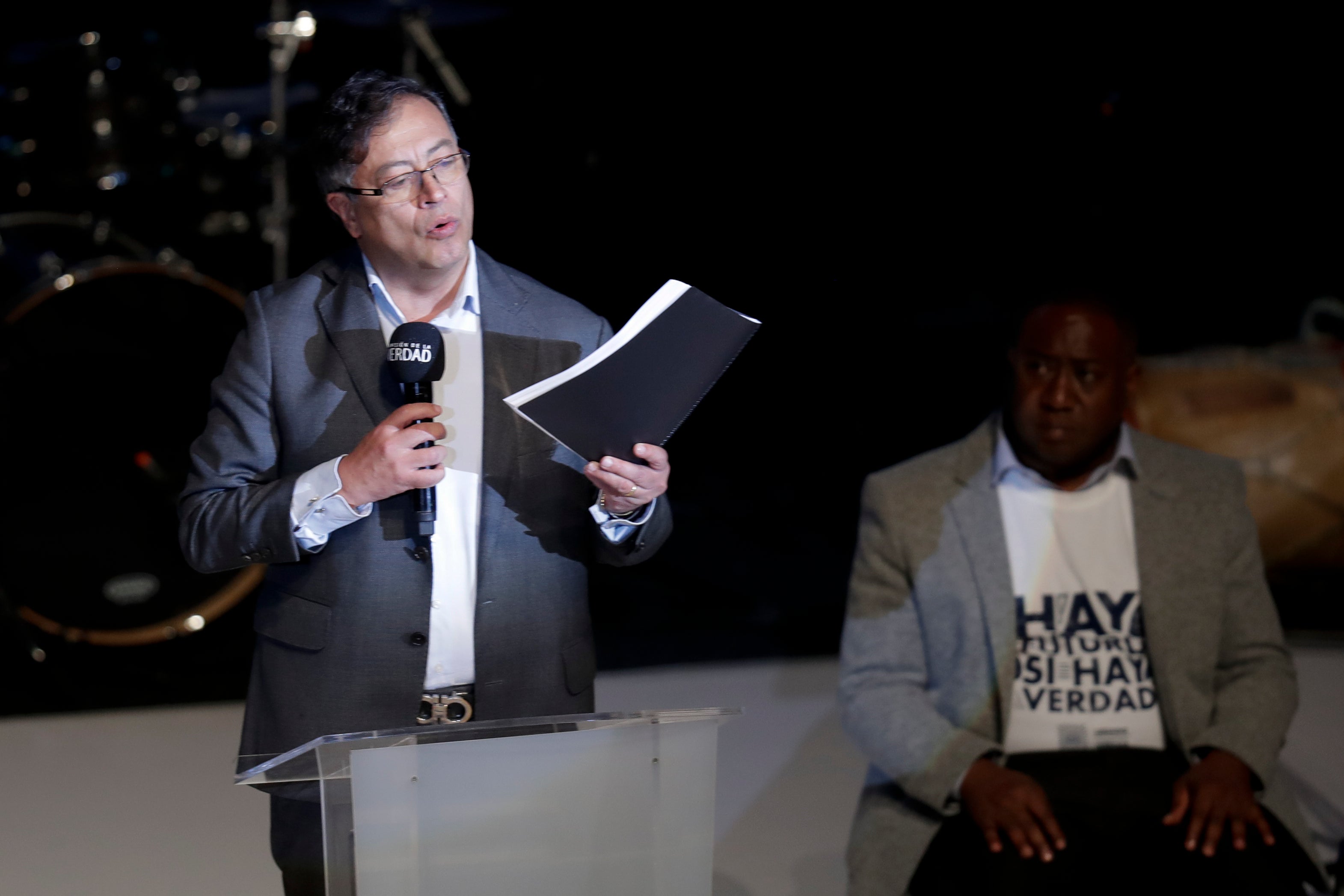UN: Optimism at new Colombia leader, but concern at killings
The U.N. special envoy for Colombia says that “there are good reasons for optimism” about the country’s incoming left-leaning administration

The U.N. special envoy for Colombia said Thursday that “there are good reasons for optimism” about the country’s incoming left-leaning administration, but he warned that violence targeted at former combatants remains a chief obstacle to consolidating peace.
Carlos Ruiz Massieu told the U.N. Security Council that four former combatants were killed in just the last two weeks, bringing the total number of killings of ex-fighters to 331 since the 2016 signing of a peace agreement between the government and the Revolutionary Armed Forces of Colombia.
The accord ended more than 50 years of war in Colombia that caused over 220,000 deaths and displaced nearly 6 million people, but it has not been supported by elements on both the left and right in the South American country.
Ruiz stressed that a priority for any peace agreement “must be to safeguard the lives of those who laid down their arms in good faith with the assurance that they would be protected.”
“Illegal armed actors continue to target local leaders in conflict-affected areas marked by poverty, illicit economies and a limited presence of the state,” he said. “Indigenous and Afro-Colombian communities are among the most seriously affected by the violence and insecurity.”
He also pointed to recent concerning information on “the alleged misuse of considerable resources from royalties from hydrocarbon exploitation” that were supposed to go to development projects in areas of the countryside where the war had a major impact. He called for transparency and investigations of all possible acts of corruption.
Ruiz said the incoming administration of President-elect Gustavo Petro, a one-time guerrilla fighter who is to be sworn in Aug. 7, “has a tremendous opportunity and responsibility to accelerate implementation of the peace agreement.”
Petro narrowly won a runoff election in June, defeating a millionaire political outsider and ushering in a new era of politics for Colombia by becoming the country’s first leftist elected to the presidency.
Ruiz noted that Petro has called for national unity, expressed his intention to deepen implementation of the peace deal and urged negotiated solutions with the remaining illegal armed groups in the search for what he calls “total peace.”
The U.N. envoy said Petro “strongly reaffirmed that peace would be a cornerstone of his government” when they met two weeks ago, and the president-elect said “he was counting on the support of the United Nations.”
Ruiz said he also met with Vice President-elect Francia Marquez, the first Afro-American woman to hold the position in Colombia. She reiterated “that peace, with a territorial and ethnic approach, will feature prominently in the government’s agenda,” Ruiz said
“There are good reasons for optimism,” the U.N. envoy said, “and I believe the United Nations and the international community should do all they can to lend their support.”
Bookmark popover
Removed from bookmarks